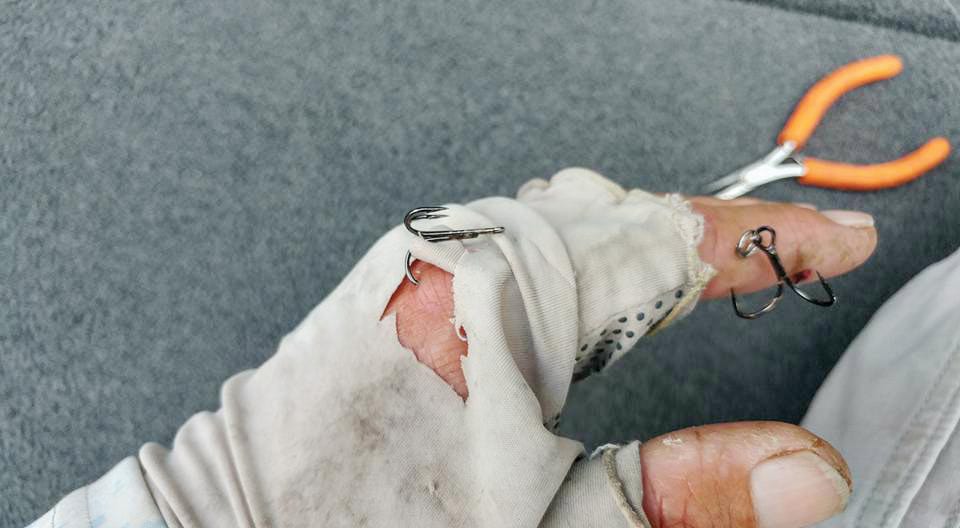
Recently, I was enjoying a quiet morning on the boat, all by myself, catching several fish in a remote place on the lower end of the Apalachicola River system. The bass were chomping on my top-water jerk-bait like they’d never seen one before, and I got complacent while de-hooking one. The fish made a sudden, violent shake and suddenly I had two hooks in my hand with a flopping fish on the jerk-bait’s third hook. This is one of the many hazards anglers should be prepared for when they occur; and hazards WILL occur, it’s just a matter of time.
Being an old experienced salt, the removal of those hooks from my hand was not that big of a deal; it just took some time because I was alone and had only one hand to use. Had that happened to an angler who’s never had a hook in his hand, it may have been a different story. Imagine this happening to your child, an elderly person or a loved one…would you know what to do?
Obvious hazards like foul weather, high winds, and extreme cold are usually easy to negotiate as a recreational angler; you just don’t go that day! It’s the calm, pleasant, inviting days when you least expect some hazardous event to take place that they seem to occur.
My intent is to inspire you to prepare for the unexpected as best you can. There are way too many hazardous scenarios that could play out in a day of fishing so the following is just an overview of a strategy.
People getting hooked, cut or falling in or out of a boat are likely the most common hazards anglers experience.
Makes sure everyone on board your vessel knows exactly where life jackets and throw cushions are located and how and why to use them. Life jackets are obvious but some may not realize the importance of the throw cushion. When someone falls overboard, it’s imperative that someone keeps their eyes on him to maintain his location and get a cushion tossed to him immediately! You’d be surprised how quickly this type of scenario can turn bad so make sure all aboard know the drill.
A basic first-aid kit on board is a good start for being able to tend to cuts, sprains and burns, but be sure to take the next step and keep a few extra items on board like duct tape, rescue tape, zip ties, super glue etc. Also, make sure you know how to remove hooks and be able to determine if a hooked situation is something that can be treated on the water or if a trip to the ER is required.
As a licensed Captain and retired military, I’ve had plenty of training with first aid, CPR and other emergency matters, but many folks on the water have not. If you captain a vessel, be sure to get this kind of training if you don’t have it…you owe it to the people that may rely on you out there.
~ Capt. Randy (C-note) Cnota
